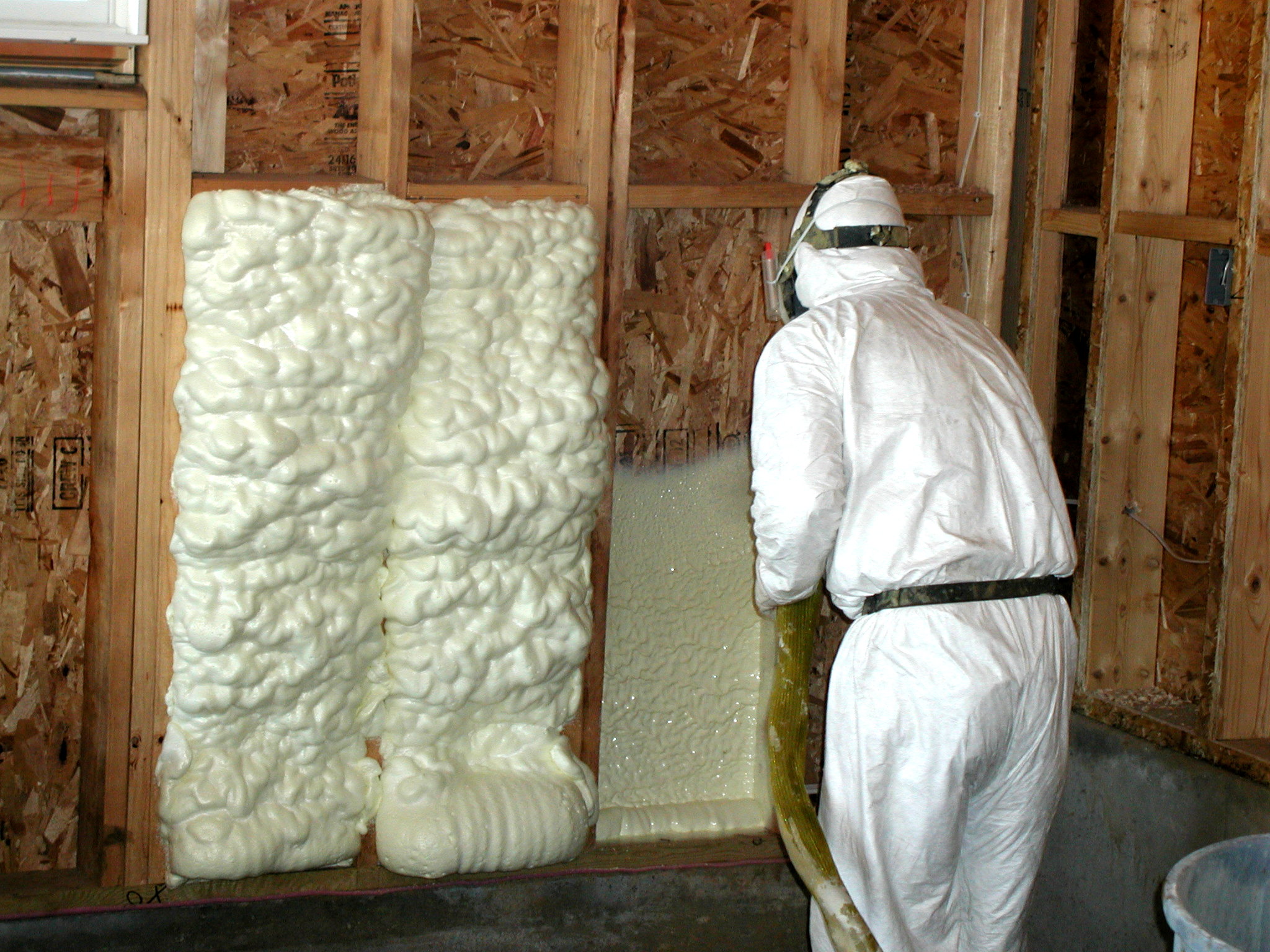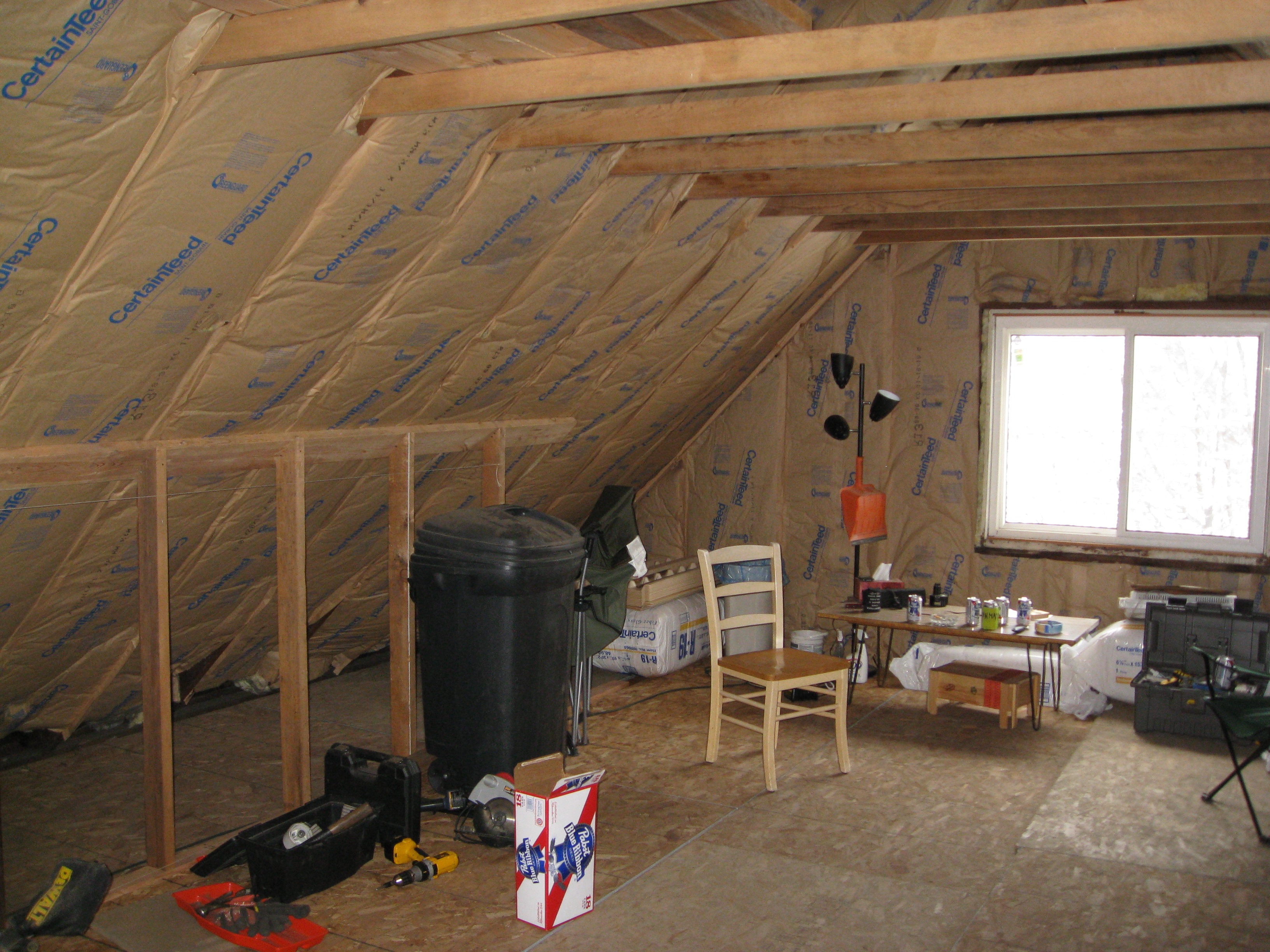Free Quotes – Why Contractors Can Be Flaky, and How to Fix It
Have you had a crummy experience with a contractor even before you paid them to do anything?
Did they show up to take a look at something in your home, then never bother to even send a quote, making you shake your head that they spent the time to come out but didn’t do what they needed to in order to get a job?
Yeah, me too. On both sides of the equation, actually.
I have been guilty of going to a customer home to take a look and then never sending anything to them. I hadn’t really thought about why contractors are so flaky until just recently.
Probably this is due in large part to the fact that I decided to stop doing ‘regular’ insulation contracting because I burned out, so now I’m looking at things from an outside perspective. It’s similar to when a friend in high school would tell you a guy/girl was totally into you, but you couldn’t see it because you weren’t outside the situation. I also had a conversation the other day that made me think about it as well.
The Call That Inspired This Post
A couple of weeks ago I spoke to a prospect who was obviously disgusted with the folks in the Home Performance/Insulation Contractor industry. She had had an energy audit from the local gas company, which do not include true work scopes*, but now she couldn’t find anyone (after 3 months!) to actually DO the work. I was not surprised. The problem is systemic, and it is actually why I completely burned out recently and had to totally change how I do things.
So what is the underlying problem?
I’m not going to say this is the whole picture, but it is a huge part of it: the problem is the free quote and incentives.
To help you understand, let me walk you through my old process, one that I developed and ran for almost 5 years:
- The Call – You, the customer, calls me and tells me that you have a problem and would like a free quote.
- Setting Up – We set up a time, often in the evening after I have already put 8 hours in, and I come out to look.
- The “Free” Quote – We spend 2 hours together at my expense. You have no defined specification, so this is not JUST a free quote but a free design meeting as well.
I ask some questions but generally talk too much, take a look through your entire home trying to diagnose the whole complicated thing (it’s like diagnosing the human body completely in an hour), and develop a plan that I hope you’ll buy, I hope will be profitable, and I hope will solve problems, right there on the spot like I’m some type of psychic or magician.
This is where things get perverse, incentive-wise.
Since I’m doing free design, who do you think that design is prioritized for? Do you think it might be biased away from what will really help you solve problems and biased toward what I want to sell?
If so, here’s a gold star, you’ve been a good student…
- The Math – Most of the time, I would put together numbers on the spot and present them to you in a rough form.
- The (Secret) Decision – I would decide if I thought you were likely to buy from me, and if I even wanted to work for you. Some people are jerks and I’m not a bad read of people. Those folks may or may not have actually received a written quote. Did I just waste my time at that point? Yes. But I wasn’t going to waste any more. It’s important to know that not only is the contractor selling you, but you have to sell the contractor that they want to work for you.The way you treat the time they are GIVING you tells them volumes.
- Work Scope and Quote – This is why I wouldn’t send a quote to everyone. It takes me 1-2 hours to take an estimate to a proposal. They are very detailed and serve as work scopes for my crew. If there are strange items where I know special materials will be needed, I put those details in there. I note the specific things that need to be air sealed, such as how many recessed lights there are and any holes in the ceiling (thermal bypasses are the technical term) I found that need to be addressed. If I don’t think you’re likely to buy, and I don’t get paid for this, what is my incentive to do this step, much less do it well? If it’s busy season maybe there are other more attractive projects out there that get worked on first, you get put in the “round tuit” file, which eventually becomes the round file.
- The Negotiations – This is the part that can really kill you. I tend to have very analytical customers. 10-20 emails back and forth is pretty routine before coming to agreement on a project that may only be $2000-3000. They are usually not the short, fast kind, either. This may consume 2-20 hours of my time. My hourly rate just got cut further. On the other hand, when someone starts asking questions the likelihood of me getting the job goes up substantially because the customer is engaging me. This makes this part a little easier, but it’s exceedingly rare that a $2000 project is likely to fix all the systemic problems and bring the house into balance, and even if it does I don’t have time to develop the all important relationship with the homeowner, or perform follow up and continuous commissioning.
What do I get paid for all those steps? $0. It’s a free quote.
Coming up with the work scope, the detailed things that need to happen, is a particularly thankless job. It is expected, and mine are better than most, but I don’t get paid. So I end up feeling used and abused pretty often when my scope gets given to another contractor to actually do the job. It didn’t happen all the time, but when it did, it really burned me.
I’m not telling you all this to whine and complain, by the way, I’m telling you this so you can begin to see inside the mind of a contractor and understand why they sometimes act in seemingly irrational and flaky ways, and why recommendations may look generic instead of tailored.
Contractors are judged by a standard that they are getting paid the whole time like most people do at their jobs – put in the hours, get paid for the hours.
It doesn’t work that way in a straight commission world like contracting, so the rules are different.
OK, so how do you fix this?
Ideally, you pay for diagnostics, design, and work scope.
Yes, I realize how abhorrent that sounds to a consumer, but it’s the truth. You wouldn’t expect to build a house without an architect, don’t expect to fix a house without a building scientist.
Incentivize someone to do a good job for you, and you get a good job more often. Let me give a little example, though.
A roofer I know who does high end work will give you a ballpark number for free, but if you want a detailed breakdown (meaning a work scope) he charges for it. He can do that because he runs purely on referrals. His number isn’t even in the phone book anymore. So people that come to him usually want him to do the job, they aren’t looking for someone else. I’ve heard him called the ‘gold standard of roofing’ by a real estate agent in the town he’s in. He got tired of chain yankers, so now he charges for written estimates. Like most people he wants to get paid for his time. He has to get paid somehow, and he doesn’t want his clients paying for him to meet tire kickers.
The really hard part is how do you decide which contractor you want to work with? When you figure this one out, you can be a millionaire!
The closest thing out there is Angie’s List*, in my opinion it’s the most ethically clean and useful service currently available. They get a big chunk of their money from consumers, not contractors, so they have incentive to serve the consumers well.
Home Advisor, formerly known as Service Magic, gets its money from contractors. Their incentive is to help the contractors more than consumers, and it feels like they don’t do either very well.
Is Angie’s List ethically perfect? Heck no. They get money from contractors to bump them to the top of the list, I’ve paid it for several years now at about $500/mo. Plus contractors can advertise in their magazine, if they have an A or B rating. They are also now a public company, which means they need to make money for their shareholders. These couple of things are likely to make them head downhill quality-wise, and I’ve actually heard of a couple of bad experiences with them. That said, it’s like democracy – it ain’t perfect, but it’s the best we’ve got.
By the way, do you hear that word again? Incentive.
Where does the money come from, follow the money. It doesn’t have to be money, though, it can be your incentive to not have a bad experience with a contractor.
Speaking of which, let’s continue the thought of finding a contractor. Here are a few ways to cull the herd:
- Quantity of Reviews – Look for as many reviews as you can from different sources. The more, the better because it is not as likely they are written by an employee, friend, or family member. (I strongly suspect a company I know of writing their own Google reviews, and it ticks me off.)
- Quality of Reviews – Angie’s List reviews are typically of higher quality than many other sources because more thought is put into them (there’s incentive once in the AL system to give good reviews to help future consumers make educated decisions.) Don’t just look for ‘he’s a nice guy’ and ‘the crew was really great.’ Look for details, like ‘they left the house cleaner then when they came,’ or ‘they really worked with me to help me understand my choices,’ or ‘they found more than they expected, but didn’t charge more (or were very reasonable in their up charge.’ You want nitty-gritty. That’s the mark of a good review.
- Word of Mouth – Still the best way to find a good contractor. Ask friends, family, and neighbors. Still imperfect, they may have gotten the guy on his best day, you may not.
- References – Ask the contractor for references, talk to their actual customers and get a real look at what they were like. Prepare a few questions in advance, by the way.
- Website – OK, I’m biased here because I like to write and I have one of the best web sites in my industry (I’m humble, too…) Still, if the website is helpful and frank and honest, it’s a reflection of the company as well.
- Gut Feeling – Admittedly not super-reliable, but if you have a bad feeling, you’re probably right. If you have a good feeling, you still might be wrong, so be sure to at least consider the first 5.
So does all that make sense? Do you have more of an insight into a contractor’s mind now? Do they seem slightly less flaky now that you understand their incentives? By the way, to the lady that I talked to the other day, I did a really crappy job of making this point to you, but thanks for inspiring me to write this post. It’s a difficult point to make quickly and without sounding disingenuous.
So if this helped you, it’s time for the pitch:
Are my ‘quotes’ free anymore? Nope. If you pay me, you get a better job, because I have incentive. I charge a nominal fee for a first consultation, basically to give you incentive to engage with me and cull out my own chain yankers.
The first consultation is mostly questions for you to figure out what is bothering you and which direction to head. It’s like the first ten minutes of a physical, “does this hurt, how much?” We can fix all sorts of things, from icicles to cold rooms to dry skin, but we have to know what hurts, and how much.
We also analyze your energy bills and run a blower door test to find out how much your home leaks, all while giving you a Building Science education in the same open, frank manner of this blog.
If we collaboratively decide to go further, then we move on to an energy audit, work scope, quote, and comprehensive recommendations that typically include 3 custom-tailored packages that will solve the problems that are important to YOU. Sound interesting? Give us a buzz or shoot us an email.
Related Articles:
Confessions of an Insulation Contractor, Part 1
Confessions of an Insulation Contractor, Part 2
Why You Should Insulate Before Replacing Your Furnace
* A work scope is a detailed description of what things need to get done for a project or part of a project. Good ones take time to develop.
** Yes, Angie’s List costs money. There’s that incentive thing again. If you just pick the contractor listings and not the doctor listings, it’s around $40/year. Is it worth $40 to avoid a bad experience with a contractor? That’s your incentive to spend $40. Look for contractors with at least 5 reviews, if at all possible.
Full Disclosure: I don’t get paid by Angie’s List to say nice things about them. No money goes either way, anymore. Aside from my own personal membership.
Photo credit: Creative Commons from Mike Bitzenhofer on Flickr.
Get the HVAC Guide

It's free! Make buying a new furnace, air conditioner, or heat pump less stressful.










